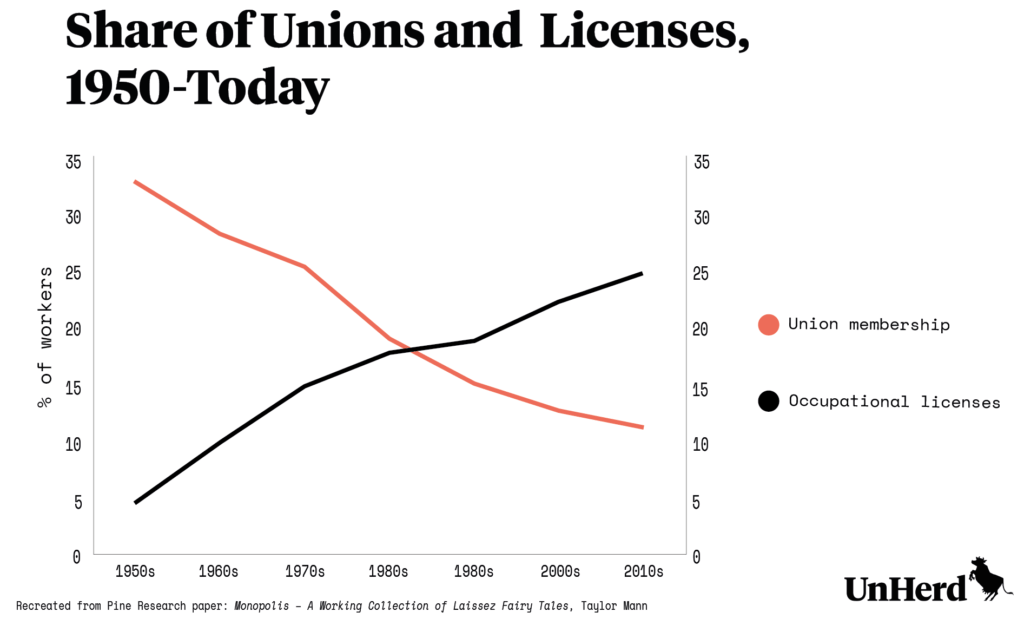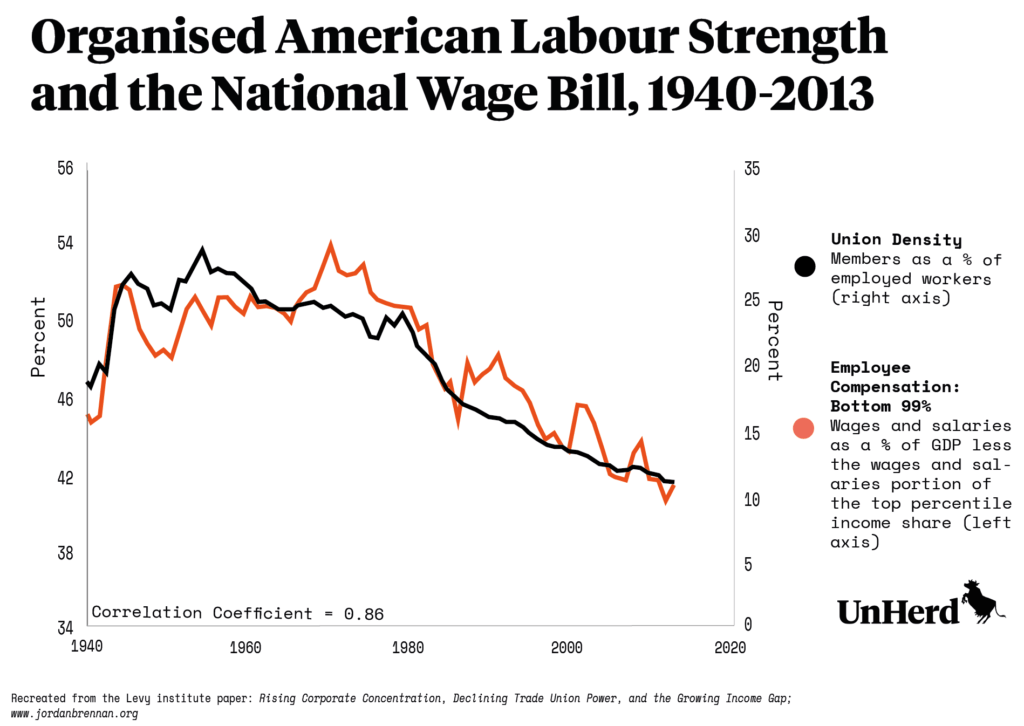Credit: Joe Raedle/Getty Images
Cleaning airplanes is a dirty job. Even dirtier when your company doesn’t pay enough to keep your children off the street. Angel Rivera is a mother of four, working as a cabin cleaner at Boston Logan Airport. She works overtime to support her family and pay the bills. Her first job as a cabin cleaner paid only $8 an hour, which made her mounting living costs unbearable. Writing in The Nation she describes “Low pay, abuse and disrespect” as “common currency”. At one point, her kids and girlfriend ended up living in a homeless shelter and she relied on government assistance. When she tried to organise her fellow workers into a union, she was fired.
Everything changed when she took another cleaning job. This one was unionised under 32BJ SEIU, a collective of property services workers, and one of the fastest growing private sector unions in the country. She began earning $17 an hour, had access to health care and moved off government assistance. She even had the ability to take vacation to spend time with her children.
Some see unions an anachronistic, or, worse yet, a threat to free-market capitalism. But unions represent a broad swath of American jobs – teachers, engineers, pilots, farmers, doctors and even rocket scientists. There is now a Freelancers Union which seeks to use collective bargaining for freelancers seeking health care, benefits, and insurance.
Since the birth of the nation, unions have existed in various iterations. After the Great Depression in the early 1930’s, tensions had escalated between workers and firms due to deteriorating working conditions. In 1935, President Roosevelt stated to Congress that “the rights of employees freely to organize for the purpose of collective bargaining should be fully protected,” and his New Deal was enacted. It made a host of sweeping reforms aimed at strengthening the battered economy and providing guidelines for basic working conditions. The New Deal helped to re-strengthen unions, which had waned through the roaring 20’s.
Unions maintained an important role in American working life for decades, but then declined again. In 1983, about one in five Americans were part of a union – today, only 6.4% of private sector workers in America are unionised and less than 11% of total workers. This represents a considerable decline in workers’ ability to band together and advocate for their collective rights.
Similar to the Gilded Age of the late 19th century, American capitalism today has moved from a model of competing companies in each industry, to a highly concentrated economy with a few dominant firms controlling most industries. Workers now have to negotiate with monopolists and oligopolists for wages and benefits – and with minimal union participation, companies have capitalised on the fact that workers are isolated and dispersed. All kinds of strange phenomenon show up that disempower workers. A few examples:

 Main Edition
Main Edition US
US FR
FR








Join the discussion
Join like minded readers that support our journalism by becoming a paid subscriber
To join the discussion in the comments, become a paid subscriber.
Join like minded readers that support our journalism, read unlimited articles and enjoy other subscriber-only benefits.
Subscribe